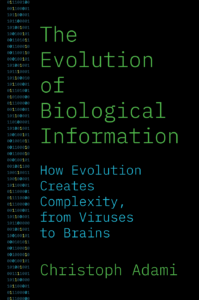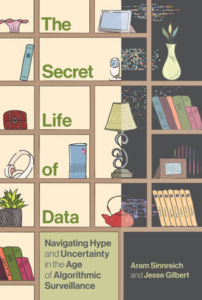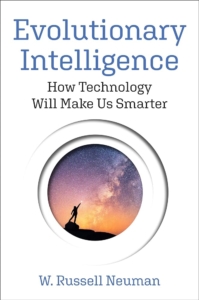“The Evolution of Biological Information: How Evolution Creates Complexity, from Viruses to Brains” with Professor Christoph Adami
Consider this thought-provoking statement: “Life is information that maintains itself.” This argument, proposed by Professor Christoph Adami in his book “The Evolution of Biological Information: How Evolution Creates Complexity, from Viruses to Brains” places information at the heart of biological systems. Adami’s innovative perspective offers fresh insights into phenomena such as the evolution of drug resistance in viruses, the development of cellular communication, and the emergence of intelligence. By framing information as the unifying principle of biology, this approach provides a systematic way to explore the origin of life—both on Earth and beyond. In this episode of Bridging the Gaps I speak with Professor Christoph Adami.
Christoph Adami is professor of microbiology and molecular genetics & physics as well as astronomy at Michigan State University. A pioneer in the application of methods from information theory to the study of evolution, he designed the Avida system that launched the use of digital life as a tool for investigating basic questions in evolutionary biology. He has received several awards, including the NASA Exceptional Achievement Medal and the Lifetime Achievement Award from the International Society for Artificial Life.
We begin with an in-depth exploration of Shannon’s information theory, focusing particularly on the concept of entropy. This foundation sets the stage for a discussion on how biological systems store and preserve information. We delve into the information content of genes and proteins, highlighting a key idea from the book: “Living organisms know some very important facts about the world they inhabit and thrive in.”
Next, we examine the concept of genetic information and its storage within DNA molecules and genomes. This includes a detailed look at the nature of this information and the latest understanding of the data encoded within the genome.
We then turn to the core mechanisms—or laws—of evolution: inheritance, variation, and selection, framing these processes as the measurement, processing, and transmission of information. To describe evolution through the lens of information theory, Adami incorporates the concept of Maxwell’s demon, a thought experiment that challenges the second law of thermodynamics. We discuss this thought experiment in detail and its application to understanding the evolution of biological information.
Finally, we explore the profound question of the origin of life, accompanied by an engaging discussion on viruses. Before finishing this discussion, we also touch upon the nature and challenges of multidisciplinary research. Overall, this has been an enlightening and highly informative journey into the intersection of biology and information theory.
Complement this discussion with “The Network of Life: A New View of Evolution” with Professor David Mindell and then listen to “Zero to Birth: How the Human Brain Is Built” with Professor William Harris




Connect With Us